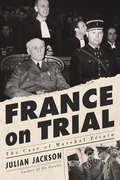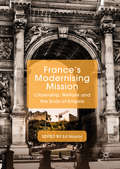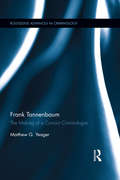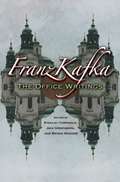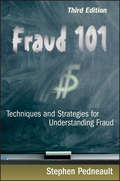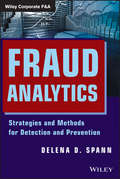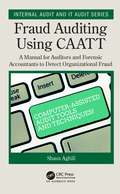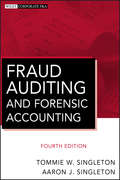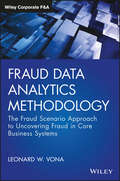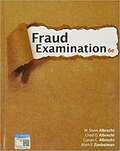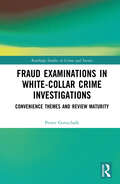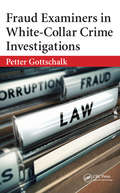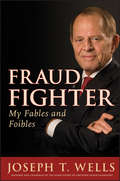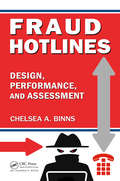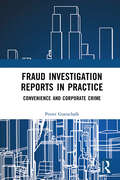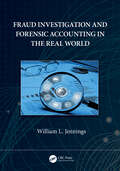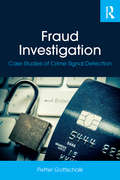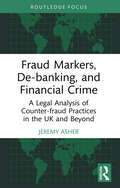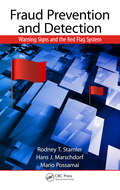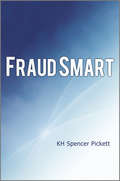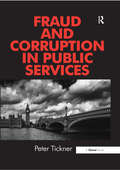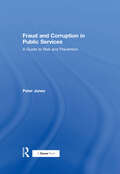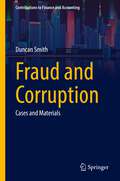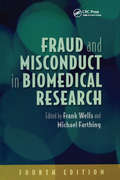- Table View
- List View
France on Trial: The Case of Marshal Pétain
by Julian JacksonFor three weeks in July 1945 all eyes were fixed on a humid Paris, where France’s disgraced former head of state was on trial, accused of masterminding a plot to overthrow democracy. Would Philippe Pétain, hero of Verdun, be condemned as the traitor of Vichy?In the terrible month of October 1940, few things were more shocking than the sight of Marshal Philippe Pétain—supremely decorated hero of the First World War, now head of the French government—shaking hands with Hitler. Pausing to look at the cameras, Pétain announced that France would henceforth collaborate with Germany. “This is my policy,” he intoned. “My ministers are responsible to me. It is I alone who will be judged by History.”Five years later, in July 1945, after a wave of violent reprisals following the liberation of Paris, Pétain was put on trial for his conduct during the war. He stood accused of treason, charged with heading a conspiracy to destroy France’s democratic government and collaborating with Nazi Germany. The defense claimed he had sacrificed his personal honor to save France and insisted he had shielded the French people from the full scope of Nazi repression. Former resisters called for the death penalty, but many identified with this conservative military hero who had promised peace with dignity.The award-winning author of a landmark biography of Charles de Gaulle, Julian Jackson uses Pétain’s three-week trial as a lens through which to examine one of history’s great moral dilemmas. Was the policy of collaboration “four years to erase from our history,” as the prosecution claimed? Or was it, as conservative politicians insist to this day, a sacrifice that placed pragmatism above moral purity? As head of the Vichy regime, Pétain became the lightning rod for collective guilt and retribution. But he has also been an icon of the nationalist right ever since. In France on Trial, Jackson blends courtroom drama, political intrigue, and brilliant narrative history to highlight the hard choices and moral compromises leaders make in times of war.
France's Modernising Mission
by Ed NaylorThis volume explores how France's 'modernising mission' unfolded during the post-war period and its reverberations in the decades after empire. In the aftermath of the Second World War, France sought to reinvent its empire by transforming the traditional 'civilising mission' into a 'modernising mission'. Henceforth, French claims to rule would be based on extending citizenship rights and the promise of economic development and welfare within a 'Greater France'. In the face of rising anti-colonial mobilization and a new international order, redefining the terms that bound colonised peoples and territories to the metropole was a strategic necessity but also a dynamic which Paris struggled to control. The language of reform and equality was seized upon locally to make claims on metropolitan resources and wrest away the political initiative. Intertwined with coercion and violence, the struggle to define what 'modernisation' would mean for colonised societies was a key factor in the wider process of decolonisation. Contributions by leading specialists extend geographically from Africa to the Pacific and to metropolitan France itself, examining a range of topics including education policy, colonial knowledge production, rural development and slum clearance.
Frank Tannenbaum: The Making of a Convict Criminologist (Routledge Advances in Criminology)
by Matthew G. YeagerFrank Tannenbaum and the Making of a Convict Criminologist is a historical biography about Columbia University professor Frank Tannenbaum and his contribution to American criminology. Tannenbaum was a major figure in criminology in the early twentieth century, and is known for his contributions to labeling theory, particularly his conception of the "dramatization of evil" presented in his 1938 book, Crime and Community. Tannenbaum served a year on Blackwell’s Island in New York City for labor disturbances in 1914 and subsequently became a prison reformer, writing about his experiences with the American penal system and serving as the official reporter for the Wickersham Commission’s study on Penal Institutions, Probation, and Parole in 1931. This book explores his unique early career, and his influence on convict criminology, drawing on his personal papers housed at the Butler Library at Columbia University.
Franz Kafka: The Office Writings (Obras Selectas Ser.)
by Franz KafkaFranz Kafka: The Office Writings brings together, for the first time in English, Kafka's most interesting professional writings, composed during his years as a high-ranking lawyer with the largest Workmen's Accident Insurance Institute in the Czech Lands of the Austro-Hungarian Empire. Franz Kafka (1883-1924) is commonly recognized as the greatest German prose writer of the twentieth century. It is less well known that he had an established legal career. Kafka's briefs reveal him to be a canny bureaucrat, sharp litigator, and innovative thinker on the social, political, and legal issues of his time. His official preoccupations inspired many of the themes and strategies of the novels and stories he wrote at night.These documents include articles on workmen's compensation and workplace safety; appeals for the founding of a psychiatric hospital for shell-shocked veterans; and letters arguing relentlessly for a salary adequate to his merit. In adjudicating disputes, promoting legislative programs, and investigating workplace sites, Kafka's writings teem with details about the bureaucracy and technology of his day, such as spa elevators in Marienbad, the challenge of the automobile, and the perils of excavating in quarries while drunk. Beautifully translated, with valuable commentary by two of the world's leading Kafka scholars and one of America's most eminent civil rights lawyers, the documents cast rich light on the man and the writer and offer new insights to lovers of Kafka's novels and stories.
Fraud 101
by Stephen PedneaultA straightforward guide explaining the nature of financial fraud Fraud continues to be one of the fastest growing and most costly crimes in the United States and around the world. The more an organization can learn about fraud in general and the potential fraud risks that threaten the financial stability of the organization's cash flow, the better that organization will be equipped to design and implement measures to prevent schemes from occurring in the first place. Fraud 101, Third Edition serves as an enlightening tool for you, whether you are a business owner or manager, an accountant, auditor or college student who needs to learn about the nature of fraud. In this invaluable guide, you will discover and better understand the inner workings of numerous financial schemes and internal controls to increase your awareness and possibly prevent fraud from destroying your organization's financial stability. It offers guidance, understanding, and new, real-world case studies on the major types of fraud, including An understanding of why fraud is committed An overview of financial fraud schemes White-collar crime Uncovering employee embezzlements Establishing internal fraud controls The nature of collecting evidence With case studies included throughout the book to gain insight to the real world of fraud, Fraud 101, Third Edition describes the features of fraud and then provides proven methods of prevention, as well as solutions to expose different types of fraud.
Fraud Analysis Techniques Using ACL
by David Coderre<P>Fraud Analysis Techniques Using ACL offers auditors and investigators: <P>Authoritative guidance from David Coderre, renowned expert on the use of computer-assisted audit tools and techniques in fraud detection <P>A website containing an educational version of ACL from the world leader in fraud detection software <P>An accompanying website containing a thorough Fraud Toolkit with two sets of customizable scripts to serve your specific audit needs <P>Case studies and sample data files that you can use to try out the tests <P>Step-by-step instructions on how to run the tests <P>A self-study course on ACL script development with exercises, data files, and suggested answers <P>The toolkit also contains 12 'utility scripts' and a self-study course on ACL scripting which includes exercises, data files, and proposed answers. <P>Filled with screen shots, flow charts, example data files, and descriptive commentary highlighting and explaining each step, as well as case studies offering real-world examples of how the scripts can be used to search for fraud, Fraud Analysis Techniques Using ACL is the only toolkit you will need to harness the power of ACL to spot fraud.
Fraud Analytics
by Delena D. SpannProven guidance for expertly using analytics in fraud examinations, financial analysis,auditing and fraud prevention Fraud Analytics thoroughly reveals the elements of analysis that are used in today'sfraudexaminations, fraud investigations, and financial crime investigations. This valuable resourcereviews the types of analysis that should be considered prior to beginning an investigation andexplains how to optimally use data mining techniques to detect fraud. Packed with examples andsample cases illustrating pertinent concepts in practice, this book also explores the two majordata analytics providers: ACL and IDEA. Looks at elements of analysis used in today's fraud examinations Reveals how to use data mining (fraud analytic) techniques to detect fraud Examines ACL and IDEA as indispensable tools for fraud detection Includes an abundance of sample cases and examples Written by Delena D Spann, Board of Regent (Emeritus) for the Association of CertifiedFraud Examiners (ACFE), who currently serves as Advisory Board Member of the Association ofCertified Fraud Examiners, Board Member of the Education Task Force of the Association ofCertified Anti-Money Laundering Specialists ASIS International (Economic Crime Council) andAdvisory Board Member of the Robert Morris University (School of Business), FraudAnalyticsequips you with authoritative fraud analysis techniques you can put to use right away.
Fraud Auditing Using CAATT: A Manual for Auditors and Forensic Accountants to Detect Organizational Fraud (Internal Audit and IT Audit)
by Shaun AghiliThis book discusses various common occupational and organizational fraud schemes, based on the Association of Certified Fraud Examiners (ACFE) fraud tree and assist fraud examiners and auditors in correctly choosing the appropriate audit tests to uncover such various fraud schemes. The book also includes information about audit test red flags to watch out for, a list of recommended controls to help prevent future fraud related incidents, as well as step-by-step demonstrations of a number of common audit tests using IDEA® as a CAATT tool.
Fraud Auditing and Forensic Accounting
by Tommie W. Singleton Aaron J. SingletonPraise for the Fourth Edition of Fraud Auditing and Forensic Accounting"Tommie and Aaron Singleton have made important updates to a book I personally rely very heavily upon: Fraud Auditing and Forensic Accounting (FAFA). In the newest edition, they take difficult topics and explain them in straightforward actionable language. All my students benefitted from reading the third edition of the FAFA to better understand the issues and area of fraud and forensic accounting. With their singular focus on understandability and practicality, this Fourth Edition of the book makes a very important contribution for academics, researchers, practitioners, and students. Bravo!"-Dr. Timothy A. Pearson, Director, Division of Accounting, West Virginia University, Executive Director, Institute for Fraud Prevention"Finally someone has written a book that combines fraud examination and forensic accounting. The authors have clearly explained both in their earlier edition and now they have enhanced the first with additional materials. The order in which the material is presented is easy to grasp and logically follows the 'typical' fraud examination from the awareness that something is wrong to the court case. The explanatory materials presented aid this effort by being both well placed within the book and relevant to the narrative." -Dr. Douglas E. Ziegenfuss, Chair and Professor, Department of Accounting, Old Dominion University"Fraud Auditing and Forensic Accounting is a masterful compilation of the concepts found in this field. The organization of the text with the incorporation of actual cases, facts, and figures provides a logical and comprehensive basis for learning the intricacies of fraud examination and forensic accounting. The authors successfully blend the necessary basics with advanced principles in a manner that makes the book an outstanding resource for students and professionals alike."-Ralph Q. Summerford, President of Forensic/Strategic Solutions, PC
Fraud Data Analytics Methodology: The Fraud Scenario Approach to Uncovering Fraud in Core Business Systems (Wiley Corporate F&A)
by Leonard W. VonaUncover hidden fraud and red flags using efficient data analytics Fraud Data Analytics Methodology addresses the need for clear, reliable fraud detection with a solid framework for a robust data analytic plan. By combining fraud risk assessment and fraud data analytics, you'll be able to better identify and respond to the risk of fraud in your audits. Proven techniques help you identify signs of fraud hidden deep within company databases, and strategic guidance demonstrates how to build data interrogation search routines into your fraud risk assessment to locate red flags and fraudulent transactions. These methodologies require no advanced software skills, and are easily implemented and integrated into any existing audit program. Professional standards now require all audits to include data analytics, and this informative guide shows you how to leverage this critical tool for recognizing fraud in today's core business systems. Fraud cannot be detected through audit unless the sample contains a fraudulent transaction. This book explores methodologies that allow you to locate transactions that should undergo audit testing. Locate hidden signs of fraud Build a holistic fraud data analytic plan Identify red flags that lead to fraudulent transactions Build efficient data interrogation into your audit plan Incorporating data analytics into your audit program is not about reinventing the wheel. A good auditor must make use of every tool available, and recent advances in analytics have made it accessible to everyone, at any level of IT proficiency. When the old methods are no longer sufficient, new tools are often the boost that brings exceptional results. Fraud Data Analytics Methodology gets you up to speed, with a brand new tool box for fraud detection.
Fraud Examination (Mindtap Course List)
by W. Steve Albrecht Chad O. Albrecht Conan C. Albrecht Mark F. ZimbelmanLearn to identify, detect, investigate and prevent financial fraud today with the latest edition of Albrecht/Albrecht/Albrecht/Zimbelman's FRAUD EXAMINATION, 6E. Develop fraud skills as you become a better interviewer, stronger and more skeptical document examiner, better technology user and more informed decision maker. Closely examine and gain a strong understanding of the types of fraud and nature of fraud investigation today with current business examples and numerous actual fraud cases, delivered first-hand from the authors' experience. FRAUD EXAMINATION presents today's most important fraud concepts with an emphasis on the growing areas of ebusiness and cyber fraud. Significant discussion familiarizes you with forensic analysis as well as legal options for victims of fraud. New discussion also highlights how experts use technology to accomplish fraud and detect fraud.
Fraud Examinations in White-Collar Crime Investigations: Convenience Themes and Review Maturity (Routledge Studies in Crime and Society)
by Petter GottschalkThis book reviews a range of reports written by fraud examiners after completing internal investigations. These reports are normally kept secret and are the property of client organizations, which do not wish to disclose potential wrongdoing that can harm the reputation of the businesses. Fraud Examinations in White-Collar Crime Investigations was able to retrieve several recent reports, including foreign aid kickbacks, Russian favors to the Biathlon president, and Leon Black’s deals with Jeffrey Epstein. While not claiming that the obtained reports are representative for the outcome of the private investigation industry, the reports do provide insights into the variety of issues that fraud examiners address in their internal investigations and the quality of their work. This book identifies convenience themes and assesses investigation maturity across the reports analyzed. It considers the motives of and opportunities for white-collar criminals, as well as their willingness to engage in unlawful activity, and assesses to what extent fraud examiners are either efficient or deficient in their work. A compelling read, this book will appeal to students and scholars of criminology, sociology, law, and politics, and all those interested in fraud examinations in relation to white-collar crime.
Fraud Examiners in White-Collar Crime Investigations
by Petter GottschalkIn Fraud Examiners in White-Collar Crime Investigations, Petter Gottschalk examines and evaluates the investigative processes used to combat white-collar crime. He also presents a general theory regarding the economic, organizational, and behavioral dimensions of its perpetrators.Pool Your Resources for a Successful InvestigationGottschalk emphasiz
Fraud Fighter
by Joseph T. WellsA collection of insightful, poignant, and humorous stories from Dr. Joseph Wells, the world's foremost fraud expert?with gutsy revelations of his own past mistakes From his dysfunctional childhood in rural Oklahoma; his service in the U. S. Navy; a brief stint in public accounting followed by a career in the FBI; and founding the world's largest anti-fraud organization, Wells' colorful life experiences were preparation for his rise to one of the globe's most revered antifraud experts. Written by the preeminent antifraud authority and founder and Chairman of the ACFE Offers a fascinating behind-the-scenes look at the life of one of the most influential white-collar crime experts of our time At a period when dishonesty at top U. S. companies is dominating public attention, The Fables and Foibles of a Fraud Fighter is a surprisingly frank and gripping memoir from an unsurprisingly effective fraud fighter. This autobiography forms a full tapestry of a life, displaying wit, intrigue, trepidation, regret, and finally, ultimate victory.
Fraud Hotlines: Design, Performance, and Assessment
by Chelsea A. BinnsThis book provides a complete guide on fraud hotlines. It is designed to educate readers with respect to the history, purpose, operation, use and utility of fraud hotlines. It also equips readers with the knowledge to create, analyze and assess the performance of fraud hotlines.
Fraud Investigation Reports in Practice: Convenience and Corporate Crime
by Petter GottschalkInvestigation reports are written by fraud examiners after completion of internal reviews in client organizations when there was suspicion of financial wrongdoing. Fraud examiners are expected to answer questions regarding what happened, when it happened, how it happened, and why. This book presents a number of case studies of investigation reports by fraud examiners, offering a framework for studying the report as well as insights into convenience of fraud. The case studies, including KPMG and PwC, focus on two important subjects. First, convenience themes are identified for each case. Themes derive from the theory of convenience, where fraud is a result of financial motives, organizational opportunities, and personal willingness for deviant behaviors. Second, review maturity is identified for each case. Review maturity derives from a stages-of-growth model, where the investigation is assigned a level of maturity based on explicit criteria. The book provides useful insights towards approaching fraud examinations to enable better understanding of the rational explanations for corporate fraud. The book is framed from the perspective of private policing, which contextualizes how investigation reports are examined. This book is a valuable resource for scholars and upper-level students researching and studying auditing and investigation work in the corporate and public sectors. Business and management as well as criminal justice scholars and students will learn from the case studies how to frame a white-collar crime incident by application of convenience theory and how to evaluate a completed internal investigation by fraud examiners.
Fraud Investigation and Forensic Accounting in the Real World
by William L. JenningsThis book covers every aspect of forensic accounting, anti-fraud control systems, and fraud investigations. The author uses his own case experience to guide the reader through each phase of a forensic accounting assignment and fraud investigation. The book opens with an explanation of what happened to a company that was ensnared in a huge commodity purchasing scheme. Using his knowledge and experience gained over 40 years, the author illustrates that unexpected fraud occurrences can happen to any company, in any industry. Additionally, the author explains the current white-collar crime threats that organizations face every day, as well as legal issues that are often implicated in forensic accounting and fraud investigation projects. Electronic and non-electronic evidence gathering is also covered in detail with illustrative examples. One chapter is devoted entirely to the often misunderstood, but extremely important, subject of witness interviews. It provides the correct approach to the analysis and correlation of evidence in determining findings and conclusions of an investigation. Another chapter is devoted to proper report writing. The author provides detailed guidance on presenting findings to a variety of audiences, including management, a board, law enforcement, and at trials and hearings. It also covers proper techniques for measuring economic damages and concludes with a useful index. William L. Jennings is a Senior Director at Delta Consulting Group. He is responsible for providing forensic accounting, investigation, and asset recovery services to corporations, government agencies, attorneys, and their clients, as well as business controls consulting services to organizations. With more than 40 years of experience in public accounting and auditing, forensic accounting, business valuation, investigation, asset recovery, and business controls development, Mr. Jennings has worked on hundreds of forensic accounting and investigation assignments and he provides expert testimony.
Fraud Investigation: Case Studies of Crime Signal Detection
by Petter GottschalkInvestigating white-collar crime is like any other investigation concerned with past events. However, a number of characteristics require a contingent approach to these investigations. This book describes the process of conducting private internal investigations by fraud examiners and presents a number of reports from the United States, Sweden and Norway. It evaluates a number of internal investigation reports to reflect on the practice of fraud examinations. Empirical studies provide a basis to reflect theoretically on practice improvements for fraud examiners. Rather than presenting normative recommendations based on ideal or stereotype situations so often found in existing books, this book develops guidelines based on empirical study of current practice. Internal investigations should uncover the truth about misconduct or crime without damaging the reputation of innocent employees. Typical elements of an inquiry include collection and examination of written and recorded evidence, interviews with suspects and witnesses, data in computer systems, and network forensics. Internal inquiries may take many forms, depending upon the nature of the conduct at issue and the scope of the investigation. There should be recognition at the outset of any investigation that certain materials prepared during the course of the investigation may eventually be subject to disclosure to law enforcement authorities or other third parties. The entire investigation should be conducted with an eye towards preparing a final report. As evidenced in this book, private fraud examiners take on complicated roles in private internal investigations and often fail in their struggle to reconstruct the past in objective ways characterized by integrity and accountability.
Fraud Markers, De-banking, and Financial Crime: A Legal Analysis of Counter-fraud Practices in the UK and Beyond (The Law of Financial Crime)
by Jeremy AsherThis book enlightens the reader as to how the financial sector in the UK operates fraud databases to help combat fraud and explains the phenomenon of ‘debanking’. It considers the unique confluence of necessity, a flexible regulatory framework, and recent history of collaboration that now places fraud databases and data-sharing at the heart of the UK’s multi-agency counter-fraud strategy. It offers a practical slant to the theory behind the secretive counter-fraud and money-laundering investigation techniques, technology, and practices employed by financial organisations to disrupt fraud and money laundering. The work explains how and why the UK leads the world in this field, what progress is being made internationally to replicate these systems, and the legislative hurdles that need to be overcome to enable the level of data sharing required to make fraud databases operationally successful. It also explores the worrying trends and practices in the systems used which have adversely impacted on both innocent parties and the victims of fraud. Drawing on real-life examples, the book explores the benefits of transparency and whether the databases and the organisations that utilise them can better build fairness into their systems. It will be an invaluable resource for researchers, practitioners and policy-makers working in the areas of counter-fraud and anti-money laundering.
Fraud Prevention and Detection: Warning Signs and the Red Flag System
by Mario Possamai Rodney T. Stamler Hans J. MarschdorfMost fraud cases could have been prevented or detected earlier if early warning signs had been taken seriously. This volume enables officers and directors to protect themselves and their entities against fraud by effectively detecting, analyzing, and acting before any damage can be done. Based on an empirically tested strategy, the book teaches readers how to find Red Flag indicators of fraud or suspicious transactions in financial statements, budgets, and contracts and know how to ensure that, once a Red Flag has been identified, appropriate action is taken.
Fraud Smart
by K. H. PickettA professional guide to developing training for fraud risk and detectionThis book provides a simple but effective method of developing a fraud risk awareness strategy that focuses on training employees using a six-stage approach to this task that involves understanding the threat, appreciating respective responsibilities, embracing a sound moral compass, recognizing red flags, mastering suitable internal controls, and managing the risk of fraud. Using this step-by-step approach, all senior executives, managers, employees, and associates can develop an important new skill set that will help them understand and deal with the risk of fraud in the workplace.
Fraud and Corruption in Public Services: A Guide To Risk And Prevention
by Peter TicknerFraud, corruption and bribery in and around public services have become an increasing concern in recent years. The reported level of fraud and corruption affecting the public sector has remained unacceptably high despite numerous national and international initiatives intended to tackle these crimes and their consequences. Fraud and Corruption in Public Services is a definitive, practical guide to the diverse risks that arise in central and local government. There is guidance on civil and criminal law around fraud, bribery and corruption as well as the national and international governmental measures and initiatives for countering this form of criminality. Most importantly of all, the book offers advice, practical examples and strategies for preventing and combating fraud, bribery and corruption. The text is readable, well-informed and intensely practical; illustrated throughout with real-life examples from the author's 40 year career.
Fraud and Corruption in Public Services: A Guide to Risk and Prevention
by Peter JonesFraud, corruption and bribery in and around public services have become an increasing concern in recent years. The reported level of fraud and corruption affecting the public sector has remained unacceptably high despite numerous national and international initiatives intended to tackle these crimes and their consequences. Fraud and Corruption in Public Services is a definitive, practical guide to the diverse risks that arise in central and local government. There is guidance on civil and criminal law around fraud, bribery and corruption as well as the national and international governmental measures and initiatives for countering this form of criminality. Most importantly of all, the book offers advice, practical examples and strategies for preventing and combating fraud, bribery and corruption. The text is readable, well-informed and intensely practical; illustrated throughout with real-life examples from the author's 40 year career.
Fraud and Corruption: Cases and Materials (Contributions to Finance and Accounting)
by Duncan SmithThis book discusses and analyses fraud and corruption cases from many industries including construction, finance, pharmaceutical, transport, retail, medical, health, communication, education and military.The book is divided into two sections. The first part presents case studies that cover several industry sectors, including not only well-known frauds like Bernie Madoff, Wells Fargo and the Enron case, but also recent events such as the Theranos/Elisabeth Holmes case. The second section of the book includes materials on fraud and corruption such as the full text of the United Nations Convention Against Corruption, the OECD Convention on Combating Bribery of Foreign Public Officials in International Business, and the EIB’s Anti-Fraud Policy and Whistleblowing Policy. It also includes examples about current corporate anti-corruption policies from companies like Apple, Tesla and Coca Cola. For interested readers, the book offers additionally a list of films that realistically cover the topics fraud, corruption and whistleblowing.
Fraud and Misconduct in Biomedical Research, 4th edition
by Frank Wells Michael FarthingNow in its fourth edition, Fraud and Misconduct in Biomedical Research boasts an impressive list of contributors from around the globe and introduces a new focus for the book, transforming it from a series of monographs into a publication that will quickly become an essential textbook on all areas of research fraud and misconduct.Key features inclu
